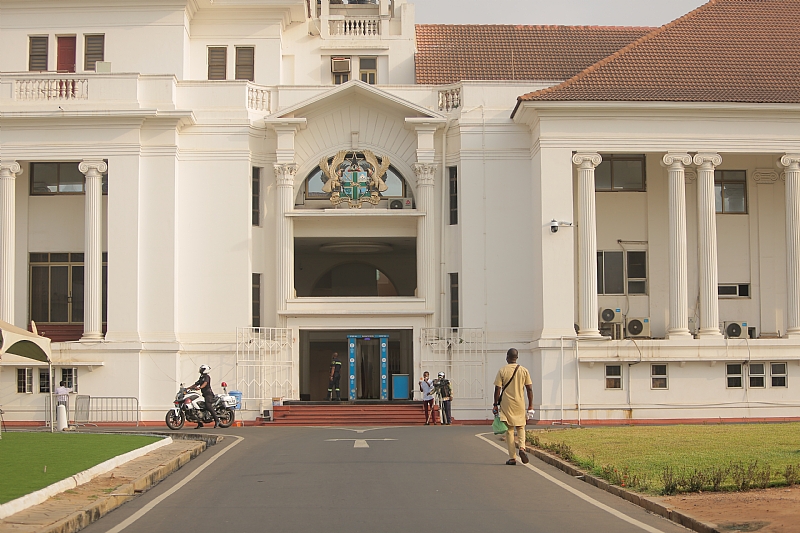
[ad_1]
Ghana, praised for its democracy and peaceful transfer of power since 1992, faced its first presidential electoral conflict in 2012. It was the sixth election for the country’s fourth republic.
Six months before the election, incumbent President John Evans Atta Mills passed away and Vice President John Mahama was sworn in as President.
When the Election Commission declared the incumbent the winner of the presidential poll, the result was contested by Nana Addo Dankwa Akufo-Addo, presidential candidate of the main opposition New Patriotic Party. He asked the Supreme Court to overturn some 3,000,000 votes.
The election petition case, as it was called, was heard publicly. In August 2013, the Supreme Court ruled that the president had been validly elected and dismissed the petition.
Ghanaians went to the polls again in December 2020. Akufo-Addo was re-elected in the first round after securing a majority of the votes. But Mahama contested the result and took the matter to the Supreme Court.
Petitions for presidential elections are important because they trigger all three branches of government – the executive, the legislature and the judiciary. They allow citizens to understand the political and legal issues at stake and to assert the strength of national institutions.
Given the importance of these petitions, the role of the media in their presentation is very important. But how did the media cover the presidential petitions and what to expect in media coverage? My research on how the Ghanaian media framed the 2012 election petition provides some insight.
The media were expected to explain the constitutional and electoral issues at stake and their importance, to help Ghanaians understand and participate in the democratic process. But I found the media did a bad job covering the election petition like any other political campaign. They did not explain all the substantive aspects of the case and relied mainly on partisan sources to the detriment of other legal voices.
I suggest that the media in Ghana and by extension in other developing countries should educate citizens about these judicial processes, issues and implications for the voter. Journalists should include sources who can clearly explain the legal and constitutional issues at stake.
The 2012 election petition
The objectives of my study were to establish:
-
whether media coverage has followed the lines of normal political coverage focusing on who wins or loses.
-
whether the coverage provided information on the constitutional and electoral issues at stake, and
-
whose voices have been heard.
I focused on the digital platforms of the leading English language and Akan language elite radio stations. They were Joy Fm and Peace Fm. Their large audience has made good indicators for other elite and popular media in Ghana. I sampled 400 posts out of the 732 posts.
I assessed the general framework of the story – that is, whether it focused on winners and losers or on the constitutional and electoral issues at stake.
I also assessed whether the coverage focused on conflict or disagreement, attributed causes or solutions to something or someone, considered the economic consequences or indicated the impacts on individuals.
I also looked at the type of sources used and the tone of the headlines.
Results
Overall, the two publications primarily presented the election petition as a competition between the incumbent president and the opposition focusing on conflict and accountability in the proceedings.
Rather than including a diversity of sources, both publications relied almost entirely on official sources – mostly politicians or partisan sources.
I concluded that framing a legal and constitutional issue simply as a competition between two political parties distracted attention from the electoral issues at stake.
Second, it risked calling into question the authority of Supreme Court judges. For example, a story called “Tsatsu fights the judges, Addison uses Atuguba” suggested a fight between the lawyers and the judges.
The media’s reliance on partisan sources was also problematic as it led to an extensive reliance on questionable analysts and veiled politicians. Neither has provided an in-depth analysis of the process and its importance.
While the use of these sources was not surprising given the political nature of the trial, more legal voices should have been heard to explain the constitutional issues at stake.
Telephone alarm clock
Ghanaian media have yet another opportunity to engage citizens in the most recent presidential petition.
Journalists should consider using diverse voices and giving them equal prominence in reporting. They must go beyond the usual coverage processes to engage and involve citizens and explain the reasoning of judges at hearings.
The media, which like to promote themselves as non-partisan, should get to work and provide an educational service for their audiences.
Esi Thompson does not work, consult, own stock or receive funding from any company or organization that would benefit from this article, and did not disclose any relevant affiliations beyond his academic appointment.
By Esi Thompson, Assistant Professor, Indiana University![]()
Source link